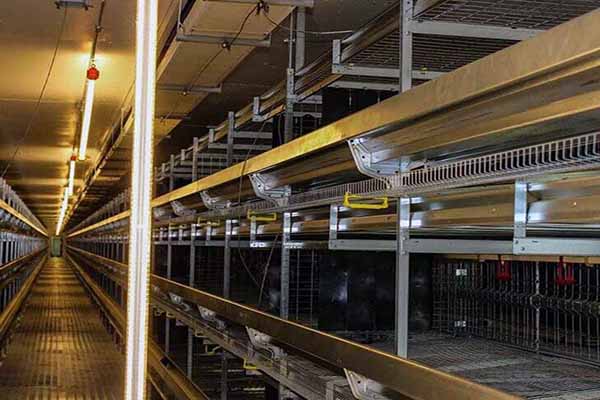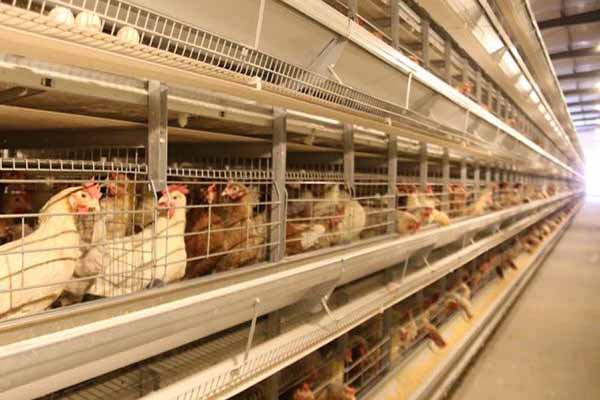Tanzania Chicken Farming: Optimizing Equipment and Data Management Systems
Time : 2025-06-26
The poultry industry in Tanzania has been growing at a remarkable pace, with chicken farming becoming a significant contributor to the country’s agriculture sector. As farmers strive to increase productivity and profitability, investing in the right equipment and data management systems has become crucial. This article delves into the intricacies of Tanzania’s chicken farming equipment and data management systems, providing valuable insights for farmers looking to enhance their operations.
Understanding Tanzania’s Chicken Farming Industry
Tanzania’s chicken farming industry has seen significant growth in recent years, with the demand for poultry products soaring. The country’s diverse climate and fertile land provide ideal conditions for chicken farming, making it a viable option for many small-scale and commercial farmers. However, to maintain this growth, it is essential to adopt modern equipment and efficient data management systems.
Key Equipment for Chicken Farming in Tanzania
Equipping a chicken farm with the right machinery is crucial for its success. Here are some essential pieces of equipment that can improve productivity and efficiency:
- Brooder Houses: Brooder houses are used to keep newly hatched chicks warm and protected until they can withstand the ambient temperature. They come in various sizes and designs, depending on the farm’s needs.
- Feeders and Drinkers: Providing chicks and adult chickens with adequate feed and water is essential for their growth and development. Automatic feeders and drinkers ensure consistent access to food and water, reducing labor costs and promoting better health.
- Environmental Control Systems: Keeping the chickens in a comfortable environment is vital for their well-being and productivity. Environmental control systems, such as heating, cooling, and ventilation systems, can help maintain optimal conditions year-round.
- Sorting and Grading Equipment: Sorting and grading equipment, such as scales and egg graders, are essential for ensuring the quality of the poultry products and facilitating better market access.
- Transportation Equipment: Proper transportation equipment, such as crates and trailers, is necessary for the safe handling and delivery of live chickens and poultry products.
Data Management Systems in Tanzania’s Chicken Farming Industry
Data management systems play a crucial role in tracking and analyzing the various aspects of chicken farming operations. Here’s how they can help:

1. Inventory Management
Accurate inventory management is essential for monitoring feed, medication, and other supplies used in chicken farming. A robust data management system allows farmers to track the usage of these items, predict future requirements, and optimize procurement.
2. Health Monitoring
Monitoring the health of chickens is critical for preventing disease outbreaks and ensuring the quality of poultry products. Data management systems can track health records, vaccination schedules, and medication usage, enabling farmers to make informed decisions regarding disease prevention and control.
3. Performance Analysis
Analyzing the performance of chickens can help farmers identify areas for improvement and optimize their operations. Data management systems can track growth rates, egg production, and feed conversion ratios, allowing farmers to make informed decisions about breeding, feeding, and housing.
4. Market Trends
Keeping abreast of market trends is crucial for making informed decisions regarding pricing, marketing, and productio n. Data management systems can help farmers analyze market trends, predict demand, and optimize their production to meet market needs.
n. Data management systems can help farmers analyze market trends, predict demand, and optimize their production to meet market needs.
Implementing Data Management Systems in Tanzania’s Chicken Farming Industry
Implementing an effective data management system in Tanzania’s chicken farming industry requires a well-thought-out approach. Here are some steps to consider:
- Identify Your Needs: Determine what data is essential for your farm’s operations and how you can use it to improve productivity and profitability.
- Select the Right Software: Research and choose a data management system that is suitable for your farm’s needs, taking into account factors such as scalability, ease of use, and compatibility with existing hardware.
- Train Your Staff: Ensure that your staff is well-trained on how to use the data management system effectively. This may involve hiring an expert or attending workshops and training sessions.
- Integrate the System: Ensure that the data management system is integrated with your existing equipment, such as feeders, drinkers, and environmental control systems, to facilitate seamless data collection and analysis.
- Monitor and Evaluate: Regularly review your data management system’s performance and make adjustments as needed to ensure that it continues to meet your farm’s requirements.
Conclusion
In conclusion, investing in the right equipment and data management systems is crucial for the success of Tanzania’s chicken farming industry. By adopting modern equipment and implementing efficient data management systems, farmers can improve productivity,  reduce costs, and ensure the quality of their poultry products. As the industry continues to grow, staying informed about the latest advancements in equipment and data management will be key to remaining competitive.
reduce costs, and ensure the quality of their poultry products. As the industry continues to grow, staying informed about the latest advancements in equipment and data management will be key to remaining competitive.











